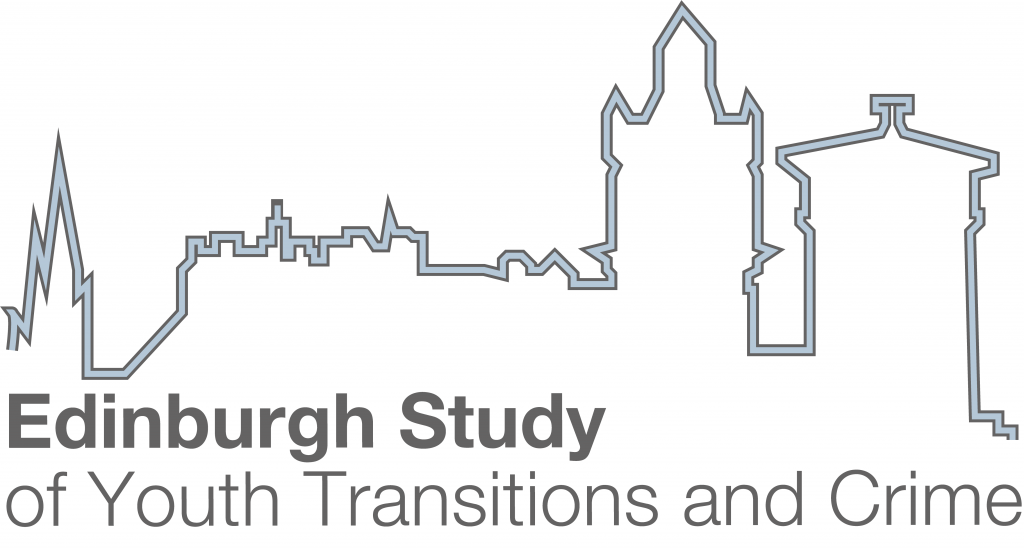
The Edinburgh Study of Youth Transitions and Crime (ESYTC)
Overview
Aims
The Edinburgh Study of Youth Transitions and Crime (ESYTC) is a prospective longitudinal cohort study aimed to examine criminal offending in young people by investigating the causes and consequences of young people’s involvement in crime and anti-social behaviour.
The study follows a cohort of around 4,300 young people who started secondary school in the City of Edinburgh in the autumn of 1998. Data collection spans from their early adolescence (age 12) to adulthood (age 33) through self-report questionnaires as well as in-depth interviews with two cohort sub-samples at ages 24 and 35 years. The study also includes linked administrative data from official records, including education, social work, and criminal conviction records.
Institution
The University of Edinburgh
Geographic coverage - Nations
Scotland
Geographic coverage - Regions
Edinburgh
Start date
1998
Catalogue record last updated
09/02/2026
Sample
Sample type
Cohort study
Sample details
The cohort is composed of individuals who started their first year of secondary school in the City of Edinburgh in the autumn of 1998. Eligibility for participation was primarily based on whether, at the time, the pupil was attending one of the 40 schools which had agreed to participate in this study, out of the possible 49 mainstream, independent, and special education needs schools in Edinburgh. The 4,313 pupils attending the participating schools represented 92.2% of all eligible children starting secondary school in 1998. All 40 participating schools took part throughout the first six phases of the study, between 1998 and 2003.
Parents were contacted by the school about the school’s participation in the study, with the option for them to opt-out their child(ren). The initial sample at phase 1 consisted of 4,300 pupils. In phase 2 and 3, all new pupils joining the participating schools in the target year group were invited to participate in the study. Any pupils who left the Edinburgh area were not tracked during these phases (except for those going to local authority-funded special or residential schools outside Edinburgh). From phase 4 onwards, there were no further changes to the membership and the final eligible cohort was set at 4,389.
In phase 7, 4,098 cohort members (out of 4,243 contacted) did not deny the study access to their criminal convictions data from administrative records. In addition, 252 participated in quasi-experimental interviews aimed to explore the impact of both early and late juvenile justice contact, by the age of 12 and 15 respectively, on longer term criminal justice transitions. In phase 8, 4,257 cohort members (out of the 4,280 contacted) did not deny the study access to their criminal convictions data, 770 completed an online survey, and 73 participated in interviews.
Sample size at recruitment
4,300
Sample size at most recent sweep
4,098 (2012 - Phase 7)
Sex
All
Age at recruitment
12 years
Cohort year of birth
1986
Data
Data access
UK Data Service
https://beta.ukdataservice.ac.uk/datacatalogue/studies/study?id=4800&type=Data%20catalogue
Genetic data collected
No
Linkage to administrative data
Children’s hearing records Geographic records Police records School records Social work records
Key Papers
Theory and method in the Edinburgh Study of Youth Transitions and Crime. doi.org/10.1093/bjc/43.1.169 The Edinburgh Study of Youth Transitions and Crime: Key findings at ages 12 and 13
Additional information
Website
www.edinstudy.law.ed.ac.uk
Related themes
Diet and nutrition,
education,
ethnicity and race,
housing,
neighbourhood,
parenting and family,
puberty,
sexuality and gender identity,
social care - receipt,
socioeconomic status and deprivation,
victimisation and life events,
work and employment
Mental health measures timeline
Sweep name:
Cohort member age:
Data collection period:
Notes:
Physical health measures:



